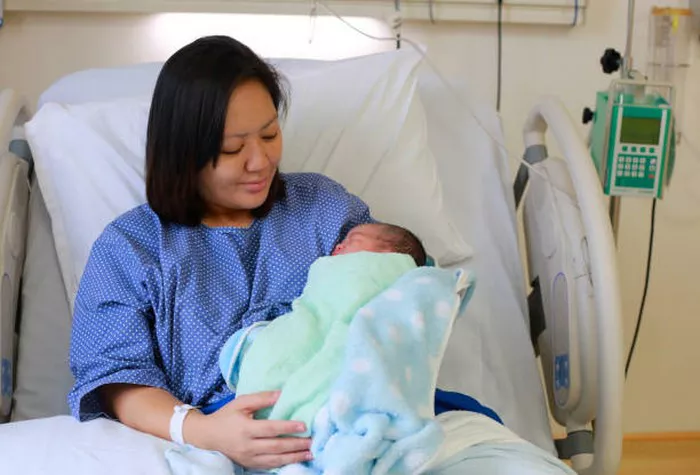Pregnancy brings many changes to a woman’s body. One of the most noticeable changes can be in the hair. Many women find that their hair becomes thicker during pregnancy. Others notice they are shedding less hair than usual. This can be a surprising but welcome change. Understanding why this happens can help expectant mothers know what to expect.
Why Does Hair Change During Pregnancy?
Hair growth follows a cycle. This cycle has three main phases. The first phase is the growth phase, called anagen. During this phase, hair grows actively. The second phase is the transition phase, called catagen. In this phase, hair stops growing and prepares to shed. The third phase is the resting phase, called telogen. During this phase, hair falls out, and new hair begins to grow in its place.
Normally, about 85-90% of hair is in the growth phase at any time. The remaining 10-15% is in the resting phase. Every day, people lose about 50-100 hairs. This is normal and part of the hair cycle.
During pregnancy, hormone levels change. One important hormone is estrogen. Estrogen levels rise significantly during pregnancy. High estrogen levels prolong the growth phase of hair. This means fewer hairs enter the resting phase. As a result, less hair falls out. This can make hair appear thicker and fuller.
When Do These Changes Start?
Many women notice changes in their hair during the second trimester. By this time, hormone levels have risen enough to affect hair growth. Some women may see changes earlier, while others may not notice a big difference. Every woman’s body reacts differently to pregnancy hormones.
The increase in hair thickness can be more noticeable in women who usually have thin hair. Women with already thick hair may not see as much of a change. However, most pregnant women experience some reduction in hair shedding.
Is This Change Permanent?
Unfortunately, the thicker hair during pregnancy is usually temporary. After childbirth, estrogen levels drop quickly. This causes more hairs to enter the resting phase. As a result, many women experience increased hair shedding a few months after delivery. This is often called postpartum hair loss.
Postpartum hair loss can be alarming. Some women may feel like they are losing too much hair. However, this is usually just the body catching up. The hair that was retained during pregnancy starts to fall out. Over time, the hair cycle returns to normal. Most women see their hair return to its pre-pregnancy state within 6-12 months after giving birth.
Can You Prevent Postpartum Hair Loss?
Postpartum hair loss is a natural process. It cannot be completely prevented. However, there are ways to support healthy hair during and after pregnancy. Eating a balanced diet is important. Hair needs nutrients like protein, iron, vitamins, and minerals to grow strong. Foods like eggs, fish, nuts, and leafy greens can help.
Gentle hair care can also reduce breakage. Avoiding tight hairstyles and harsh chemicals can keep hair healthy. Using a mild shampoo and conditioner can help. Scalp massages may improve blood flow to hair follicles. While these steps won’t stop hair loss, they can support overall hair health.
When Should You Be Concerned?
Some hair loss after pregnancy is normal. However, excessive hair loss could be a sign of a problem. If hair falls out in large clumps or if bald patches appear, it’s best to see a doctor. Other medical conditions, like thyroid disorders or nutrient deficiencies, can cause hair loss. A doctor can check for these issues.
Stress can also contribute to hair loss. New mothers often experience stress and lack of sleep. Managing stress through relaxation techniques or light exercise may help. If hair loss continues beyond a year after childbirth, a doctor or dermatologist should be consulted.
Other Factors That Affect Hair During Pregnancy
Besides hormones, other factors can influence hair during pregnancy. Some women notice changes in hair texture. Hair may become drier or oilier. This is also due to hormonal shifts. Some women even find that their hair becomes curlier or straighter. These changes are usually temporary.
Prenatal vitamins can also play a role in hair health. Many prenatal vitamins contain biotin, which supports hair growth. However, taking too much biotin can sometimes cause skin issues. It’s best to follow the recommended dosage.
Conclusion
Pregnancy affects every woman differently. For many, hair becomes thicker and fuller due to hormonal changes. This happens because more hair stays in the growth phase. After pregnancy, hair shedding increases as hormones return to normal. While postpartum hair loss can be concerning, it is usually temporary.
Related topics:
What’s Overheating and Mild Fever During Pregnancy?
10 Foods That Help Lower Blood Pressure During Pregnancy
What Do I Do If Birth Control Fails – 7 Steps!

